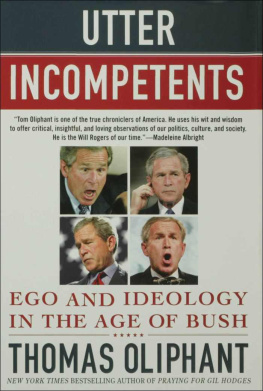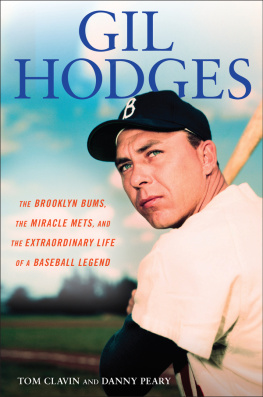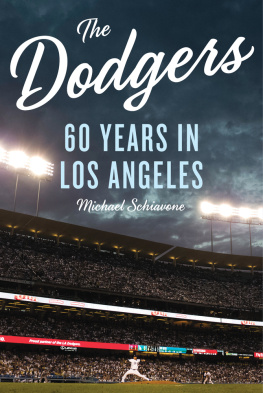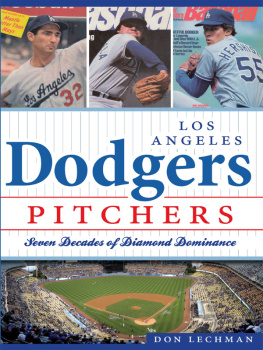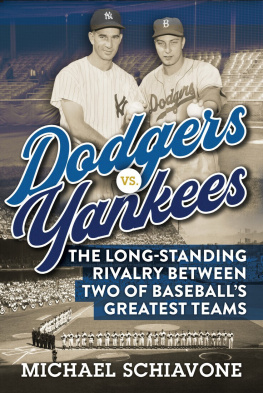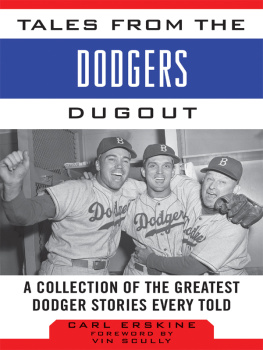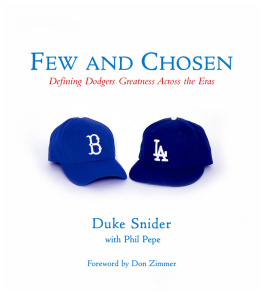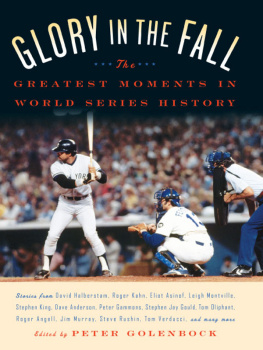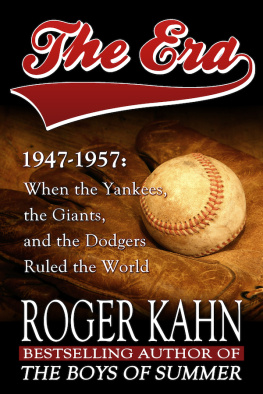Thomas Oliphant - Praying for Gil Hodges: A Memoir of the 1955 World Series and One Familys Love of the Brooklyn Dodgers
Here you can read online Thomas Oliphant - Praying for Gil Hodges: A Memoir of the 1955 World Series and One Familys Love of the Brooklyn Dodgers full text of the book (entire story) in english for free. Download pdf and epub, get meaning, cover and reviews about this ebook. year: 2006, publisher: St. Martins Griffin, genre: Non-fiction. Description of the work, (preface) as well as reviews are available. Best literature library LitArk.com created for fans of good reading and offers a wide selection of genres:
Romance novel
Science fiction
Adventure
Detective
Science
History
Home and family
Prose
Art
Politics
Computer
Non-fiction
Religion
Business
Children
Humor
Choose a favorite category and find really read worthwhile books. Enjoy immersion in the world of imagination, feel the emotions of the characters or learn something new for yourself, make an fascinating discovery.

- Book:Praying for Gil Hodges: A Memoir of the 1955 World Series and One Familys Love of the Brooklyn Dodgers
- Author:
- Publisher:St. Martins Griffin
- Genre:
- Year:2006
- Rating:5 / 5
- Favourites:Add to favourites
- Your mark:
Praying for Gil Hodges: A Memoir of the 1955 World Series and One Familys Love of the Brooklyn Dodgers: summary, description and annotation
We offer to read an annotation, description, summary or preface (depends on what the author of the book "Praying for Gil Hodges: A Memoir of the 1955 World Series and One Familys Love of the Brooklyn Dodgers" wrote himself). If you haven't found the necessary information about the book — write in the comments, we will try to find it.
Tom Oliphant has created a small masterpiece.
--Doris Kearns Goodwin, author of the bestselling Wait Till Next Year
Praying for Gil Hodges is built around a detailed reconstruction of the seventh game of the 1955 World Series, when the Brooklyn Dodgers won the world championship of baseball.
Thomas Oliphant creates a relentless melodrama that shows this final game in its true glory. As we move through the game, he builds a remarkable history of the Dodgers status as a national team, based on their fabled history of near-triumphs and disasters that made them classic underdogs.
He weaves into this brilliant recounting a winning memoir of his own familys story and their time together on that fateful Game Seven day, thrilling a nine-year-old boy in a loving, struggling family for whom the Dodgers were a rare source of the joys and symbols that bring families together through tough times.
Written with power and clarity, this is a brilliant work that captures the majesty of baseball, the issue of race in America, and the love that one young boy, his parents, and the borough of Brooklyn had for their team.
In Praying for Gil Hodges, Tom Oliphant has created a small masterpiece---a splendid recreation of life in the 1950s, a poignant tribute to his parents, and a fabulous story about the central role the Brooklyn Dodgers played in the lives of his and countless other families. Moving effortlessly from an adults perspective to a childs recollection, shifting seamlessly between the present and the past, he captures the readers interest at every step along the way. I found myself happily transported back in time, following a warm-hearted young boy as he comes of age in a memorable era.
---Doris Kearns Goodwin, author of the bestselling Wait Till Next Year
Tom Oliphant is one of our most lyrical writers and he has written a love story---about his parents, about baseball, and most of all about the American values that shaped their lives.
---Bob Schieffer, Face the Nation
The story builds to a beautiful and moving resolution, proving that the true center of this book is not the seventh game of the World Series. The heart of the story is the love of a family for a place, a baseball team, but mostly for each other.
---TheBostonGlobe
Thomas Oliphant: author's other books
Who wrote Praying for Gil Hodges: A Memoir of the 1955 World Series and One Familys Love of the Brooklyn Dodgers? Find out the surname, the name of the author of the book and a list of all author's works by series.

